- Home
- Wilkie Collins
Classic Ghost Stories
Classic Ghost Stories Read online
DOVER THRIFT EDITIONS
GENERAL EDITOR: PAUL NEGRI
EDITOR OF THIS VOLUME: JOHN GRAFTON
Copyright
Introduction and selection copyright © 1998 by Dover Publications, Inc.
All rights reserved.
Bibliographical Note
This Dover edition, first published in 1998, is a new anthology of works from standard sources. A new Introduction has been specially prepared for this edition.
Library of Congress Cataloging-in-Publication Data
Classic ghost stories : by Wilkie Collins, M. R. James, Charles Dickens, and others / edited by John Grafton.
p. cm.—(Dover thrift editions)
Includes bibliographical references.
Contents: An account of some strange disturbances in Aungier Street / J. S. LeFanu —No. 1 branch line, the signalman / Charles Dickens—Mrs. Zant and the ghost / Wilkie Collins—Reality or delusion? / Mrs. Henry Wood—The new pass / Amelia B. Edwards—The body-snatcher / Robert Louis Stevenson—What was it? / Fitz-James O’Brien—The real right thing / Henry James—Oh, whistle, and I’ll come to you, my lad / M. R. James—In Kropfsberg Keep / Ralph A. Cram—The lost ghost / Mary E. Wilkins.
9780486112268
I. Ghost stories, English. I. Grafton, John. II. Series.
PR1309.G5C54 1998
823’.0873308—dc21
98-38953
CIP
Manufactured in the United States by Courier Corporation
40430706
www.doverpublications.com
Introduction
The art of the classic ghost story developed during the Victorian decades. It is pleasant to think that one cause of this must have been that the years between 1840 and 1900 were the great age of storytelling as recreation, and what could be better for reading aloud around a cozy fireplace than a memorable ghost story? The supernatural tale flourished in those years through the efforts of many writers who devoted their efforts to it alone, such as the Irish master J. S. LeFanu, as well as through the work of some of the greatest writers of the period. Charles Dickens and Wilkie Collins were among the literary titans who turned to the form once in a while to deposit in some periodical or other a little masterpiece, such as Dickens’s “The Signalman” (included here), before returning to their usual labors. The genre reached its peak around the turn of the century and just beyond, continuing at least through the early years of the 20th century. The tradition was carried on by a new generation of literary masters, including the man many consider the greatest writer of supernatural tales, M. R. James. Lovers of great ghost stories and newcomers to its many charms and attractions will find rewarding entertainment in this collection. It has been said that nothing is more difficult to write than a perfect ghost story. Whether perfection has ever been achieved may be debated by scholars and aficionados for another century, but surely when they do, some of the tales presented to the reader here will be candidates for that accolade.
Table of Contents
Title Page
Copyright Page
Introduction
Bibliographical Sources
AN ACCOUNT OF SOME STRANGE DISTURBANCES IN AUNGIER STREET
NO. 1 BRANCH LINE: THE SIGNALMAN
MRS. ZANT AND THE GHOST
REALITY OR DELUSION?
THE NEW PASS
THE BODY-SNATCHER
WHAT WAS IT?
THE REAL RIGHT THING
“OH, WHISTLE, AND I’LL COME TO YOU, MY LAD”
IN KROPFSBERG KEEP
THE LOST GHOST
DOVER • THRIFT • EDITIONS
Bibliographical Sources
Collins, Wilkie (1824-1889), “Mrs. Zant and the Ghost.” First published in Little Novels, 1887.
Cram, Ralph A. (1863-1942), “In Kropfsberg Keep.” First published in Black Spirits and White, 1895.
Dickens, Charles (1812-1870), “No. 1 Branch Line, The Signalman.” First published in All the Year Round, 1866.
Edwards, Amelia (1831-1892), “The New Pass.” First published in Monsieur Maurice, 1873.
James, Henry (1843-1916). “The Real Right Thing.” First published in The Soft Side, 1900.
James, Montague Rhodes (1862-1936), “ ‘Oh, Whistle, and I’ll Come to You, My Lad.’ ” First published in Ghost Stories of an Antiquary, 1904.
Le Fanu, Joseph Sheridan (1814-1873), “An Account of Some Strange Disturbances in Aungier Street.” First published in the Dublin University Magazine, December, 1853.
O’Brien, Fitz-James (1828-1862), “What Was It?” First published in Atlantic Monthly, June 1859.
Stevenson, Robert Louis (1850-1894), “The Body-Snatcher.” First published in the Pall Mall Magazine, Christmas number, 1884.
Wilkins, Mary E. (1852-1930), “The Lost Ghost.” First published in The Wind in the Rose-Bush and Other Stories of the Supernatural, 1903.
Wood, Mrs. Henry (Ellen Price) (1814-1887), “Reality or Delusion?” First published in Johnny Ludlow, 1st series, 1874.
J. S. LE FANU
AN ACCOUNT OF SOME STRANGE DISTURBANCES IN AUNGIER STREET
IT IS NOT worth telling, this story of mine—at least, not worth writing. Told, indeed, as I have sometimes been called upon to tell it, to a circle of intelligent and eager faces, lighted up by a good after-dinner fire on a winter’s evening, with a cold wind rising and wailing outside, and all snug and cosy within, it has gone off—though I say it, who should not—indifferent well. But it is a venture to do as you would have me. Pen, ink, and paper are cold vehicles for the marvellous, and a “reader” decidedly a more critical animal than a “listener.” If, however, you can induce your friends to read it after nightfall, and when the fireside talk has run for a while on thrilling tales of shapeless terror; in short, if you will secure me the mollia tempora fandi, I will go to my work, and say my say, with better heart. Well, then, these conditions presupposed, I shall waste no more words, but tell you simply how it all happened.
My cousin (Tom Ludlow) and I studied medicine together. I think he would have succeeded, had he stuck to the profession; but he preferred the Church, poor fellow, and died early, a sacrifice to contagion, contracted in the noble discharge of his duties. For my present purpose, I say enough of his character when I mention that he was of a sedate but frank and cheerful nature; very exact in his observance of truth, and not by any means like myself—of an excitable or nervous temperament.
My Uncle Ludlow—Tom’s father—while we were attending lectures, purchased three or four old houses in Aungier Street, one of which was unoccupied. He resided in the country, and Tom proposed that we should take up our abode in the untenanted house, so long as it should continue unlet; a move which would accomplish the double end of settling us nearer alike to our lecture-rooms and to our amusements, and of relieving us from the weekly charge of rent for our lodgings.
Our furniture was very scant—our whole equipage remarkably modest and primitive; and, in short, our arrangements pretty nearly as simple as those of a bivouac. Our new plan was, therefore, executed almost as soon as conceived. The front drawing-room was our sitting-room. I had the bedroom over it, and Tom the back bedroom on the same floor, which nothing could have induced me to occupy.
The house, to begin with, was a very old one. It had been, I believe, newly fronted about fifty years before; but with this exception, it had nothing modern about it. The agent who bought it and looked into the titles for my uncle, told me that it was sold, along with much other forfeited property, at Chichester House, I think, in 1702; and had belonged to Sir Thomas Hacket, who was Lord Mayor of Dublin in James II’s time. How old it was then, I can’t say; but, at all e
vents, it had seen years and changes enough to have contracted all that mysterious and saddened air, at once exciting and depressing, which belongs to most old mansions.
There had been very little done in the way of modernizing details; and, perhaps, it was better so; for there was something queer and bygone in the very walls and ceilings—in the shape of doors and windows—in the odd diagonal site of the chimney-pieces—in the beams and ponderous cornices—not to mention the singular solidity of all the woodwork, from the banisters to the window-frames, which hopelessly defied disguise, and would have emphatically proclaimed their antiquity through any conceivable amount of modern finery and varnish.
An effort had, indeed, been made, to the extent of papering the drawing-rooms; but somehow, the paper looked raw and out of keeping; and the old woman, who kept a little dirt-pie of a shop in the lane, and whose daughter—a girl of two and fifty—was our solitary handmaid, coming in at sunrise, and chastely receding again as soon as she had made all ready for tea in our state apartment;—this woman, I say, remembered it, when old Judge Horrocks (who, having earned the reputation of a particularly “hanging judge” ended by hanging himself, as the coroner’s jury found, under an impulse of “temporary insanity,” with a child’s skipping-rope, over the massive old bannisters) resided there, entertaining good company, with fine venison and rare old port. In those halcyon days, the drawing-rooms were hung with gilded leather, and, I dare say, cut a good figure, for they were really spacious rooms.
The bedrooms were wainscoted, but the front one was not gloomy; and in it the cosiness of antiquity quite overcame its sombre associations. But the back bedroom, with its two queerly-placed melancholy windows, staring vacantly at the foot of the bed, and with the shadowy recess to be found in most old houses in Dublin, like a large ghostly closet, which, from congeniality of temperament, had amalgamated with the bedchamber, and dissolved the partition. At night-time, this “alcove”—as our “maid” was wont to call it—had, in my eyes, a specially sinister and suggestive character. Tom’s distant and solitary candle glimmered vainly into its darkness. There it was always overlooking him—always itself impenetrable. But this was only part of the effect. The whole room was, I can’t tell how, repulsive to me. There was, I suppose, in its proportions and features, a latent discord—a certain mysterious and indescribable relation, which jarred indistinctly upon some secret sense of the fitting and the safe, and raised indefinable suspicions and apprehensions of the imagination. On the whole, as I began by saying, nothing could have induced me to pass a night alone in it.
I had never pretended to conceal from poor Tom my superstitious weakness; and he, on the other hand, most unaffectedly ridiculed my tremors. The sceptic was, however, destined to receive a lesson, as you shall hear.
We had not been very long in occupation of our respective dormitories, when I began to complain of uneasy nights and disturbed sleep. I was, I suppose, the more impatient under this annoyance, as I was usually a sound sleeper, and by no means prone to nightmares. It was now, however, my destiny, instead of enjoying my customary repose, every night to “sup full of horrors.” After a preliminary course of disagreeable and frightful dreams, my troubles took a definite form, and the same vision, without an appreciable variation in a single detail, visited me at least (on an average) every second night in the week.
Now, this dream, nightmare, or infernal illusion—which you please—of which I was the miserable sport, was on this wise:
I saw, or thought I saw, with the most abominable distinctness, although at the time in profound darkness, every article of furniture and accidental arrangement of the chamber in which I lay. This, as you know, is incidental to ordinary nightmare. Well, while in this clairvoyant condition, which seemed but the lighting up of the theatre in which was to be exhibited the monotonous tableau of horror, which made my nights insupportable, my attention invariably became, I know not why, fixed upon the windows opposite the foot of my bed; and, uniformly with the same effect, a sense of dreadful anticipation always took slow but sure possession of me. I became somehow conscious of a sort of horrid but undefined preparation going forward in some unknown quarter, and by some unknown agency, for my torment; and, after an interval, which always seemed to me of the same length, a picture suddenly flew up to the window, where it remained fixed, as if by an electrical attraction, and my discipline of horror then commenced, to last perhaps for hours. The picture thus mysteriously glued to the windowpanes, was the portrait of an old man, in a crimson flowered silk dressing-gown, the folds of which I could now describe, with a countenance embodying a strange mixture of intellect, sensuality, and power, but withal sinister and full of malignant omen. His nose was hooked, like the beak of a vulture; his eyes large, grey and prominent, and lighted up with a more than mortal cruelty and coldness. These features were surmounted by a crimson velvet cap, the hair that peeped from under which was white with age, while the eyebrows retained their original blackness. Well I remember every line, hue, and shadow of that stony countenance, and well I may! The gaze of this hellish visage was fixed upon me, and mine returned it with the inexplicable fascination of nightmare, for what appeared to me to be hours of agony. At last—the fiend who had enslaved me through the awful watches of the night; and, harassed and nervous, I rose to the duties of the day.
The cock he crew, away then flew
I had—I can’t say exactly why, but it may have been from the exquisite anguish and profound impressions of unearthly horror, with which this strange phantasmagoria was associated—an insurmountable antipathy to describing the exact nature of my nightly troubles to my friend and comrade. Generally, however, I told him that I was haunted by abominable dreams; and, true to the imputed materialism of medicine, we put our heads together to dispel my horrors, not by exorcism, but by a tonic.
I will do this tonic justice, and frankly admit that the accursed portrait began to intermit its visits under its influence. What of that? Was this singular apparition—as full of character as of terror—therefore the creature of my fancy, or the invention of my poor stomach? Was it, in short, subjective (to borrow the technical slang of the day) and not the palpable aggression and intrusion of an external agent? That, good friend, as we will both admit, by no means follows. The evil spirit, who enthralled my senses in the shape of that portrait, may have been just as near me, just as energetic, just as malignant, though I saw him not. What means the whole moral code of revealed religion regarding the due keeping of our own bodies, soberness, temperance, etc.? here is an obvious connection between the material and the invisible; the healthy tone of the system, and its unimpaired energy, may, for aught we can tell, guard us against influences which would otherwise render life itself terrific. The mesmerist and the electro-biologist will fail upon an average with nine patients out of ten—so may the evil spirit. Special conditions of the corporeal system are indispensable to the production of certain spiritual phenomena. The operation succeeds sometimes—sometimes fails—that is all.
I found afterwards that my would-be sceptical companion had his troubles too. But of these I knew nothing yet. One night, for a wonder, I was sleeping soundly, when I was roused by a step on the lobby outside my room, followed by the loud clang of what turned out to be a large brass candlestick, flung with all his force by poor Tom Ludlow over the banisters, and rattling with a rebound down the second flight of stairs; and almost concurrently with this, Tom burst open my door, and bounced into my room backwards, in a state of extraordinary agitation.
I had jumped out of bed and clutched him by the arm before I had any distinct idea of my own whereabouts. There we were—in our shirts—standing before the open door—staring through the great old banister opposite, at the lobby window, through which the sickly light of a clouded moon was shining.
“What’s the matter, Tom? What’s the matter with you? What the devil’s the matter with you, Tom?” I demanded shaking him with nervous impatience.
He took a long breath before he
answered me, and then it was not very coherently.
“It’s nothing, nothing at all—did I speak?—what did I say?—Where’s the candle, Richard? It’s dark; I—I had a candle!”
“Yes, dark enough,” I said; “but what’s the matter?—what is it?—why don’t you speak, Tom?—have you lost your wits?—what is the matter?”
“The matter?—oh, it is all over. It must have been a dream—nothing at all but a dream—don’t you think so? It could not be anything more than a dream.”
“Of course,” said I, feeling uncommonly nervous, “it was a dream.”
“I thought,” he said, “there was a man in my room, and—and I jumped out of bed; and—and—where’s the candle?”
“In your room, most likely,” I said, “shall I go and bring it?”
“No; stay here—don’t go; it’s no matter—don’t, I tell you; it was all a dream. Bolt the door, Dick; I’ll stay here with you—I feel nervous. So, Dick, like a good fellow, light your candle and open the window—I am in a shocking state.”
I did as he asked me, and robing himself like Granuaile in one of my blankets, he seated himself close beside my bed.
Everybody knows how contagious is fear of all sorts, but more especially that particular kind of fear under which poor Tom was at that moment labouring. I would not have heard, nor I believe would he have recapitulated, just at that moment, for half the world, the details of the hideous vision which had so unmanned him.

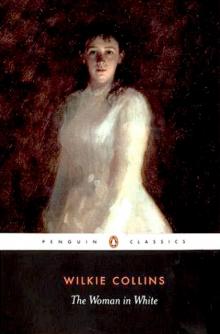 The Woman in White
The Woman in White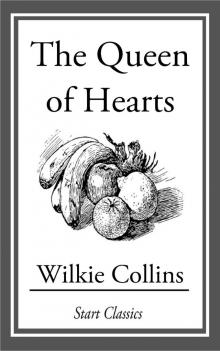 The Queen of Hearts
The Queen of Hearts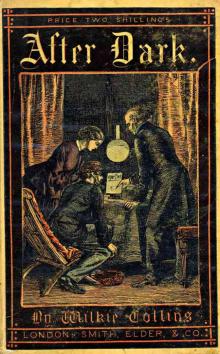 Miss Jeromette and the Clergyman
Miss Jeromette and the Clergyman Man and Wife
Man and Wife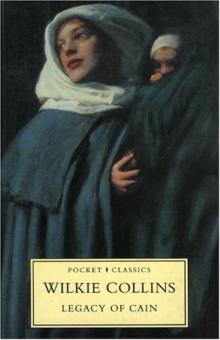 The Legacy of Cain
The Legacy of Cain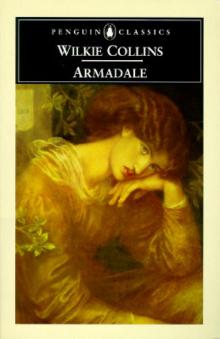 Armadale
Armadale The Frozen Deep
The Frozen Deep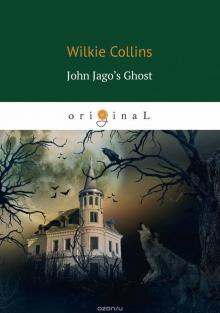 John Jago's Ghost or the Dead Alive
John Jago's Ghost or the Dead Alive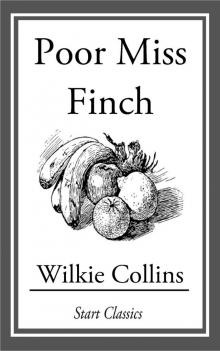 Poor Miss Finch
Poor Miss Finch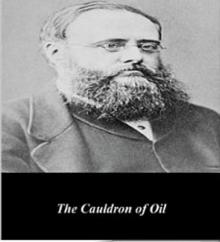 The Cauldron of Oil: A Case Worth Looking At
The Cauldron of Oil: A Case Worth Looking At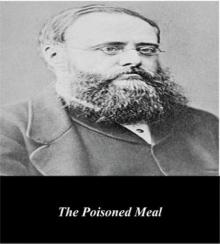 The Poisoned Meal
The Poisoned Meal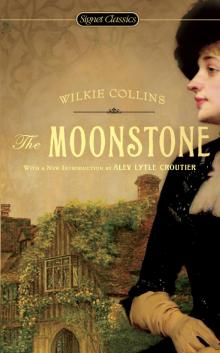 The Moonstone
The Moonstone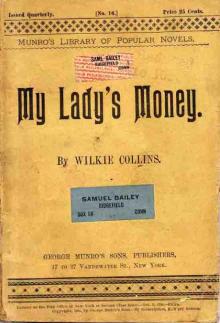 My Lady's Money
My Lady's Money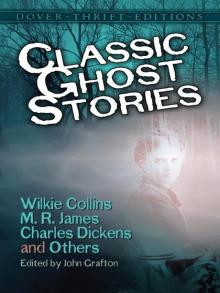 Classic Ghost Stories
Classic Ghost Stories Jezebel's Daughter
Jezebel's Daughter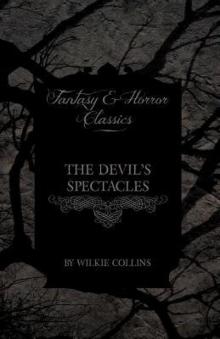 The Devil's Spectacles
The Devil's Spectacles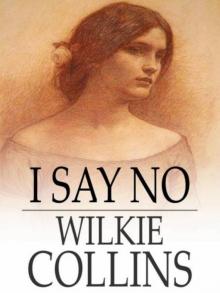 I Say No
I Say No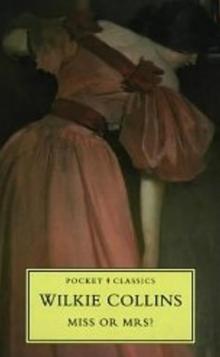 Miss or Mrs.?
Miss or Mrs.?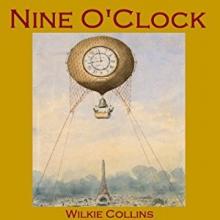 Nine O'Clock
Nine O'Clock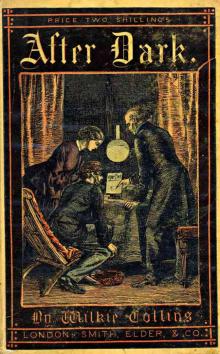 The Lawyer's Story of a Stolen Letter
The Lawyer's Story of a Stolen Letter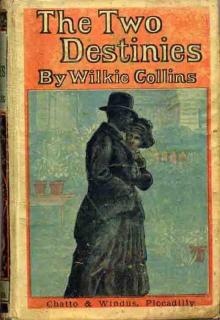 The Two Destinies
The Two Destinies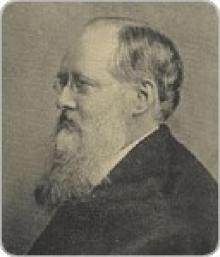 Mr. Percy and the Prophet
Mr. Percy and the Prophet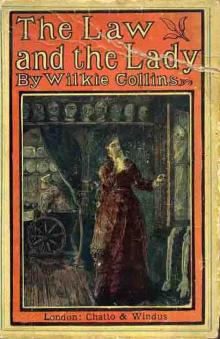 The Law and the Lady
The Law and the Lady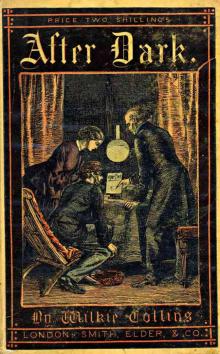 The Nun's Story of Gabriel's Marriage
The Nun's Story of Gabriel's Marriage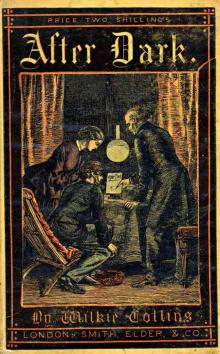 After Dark
After Dark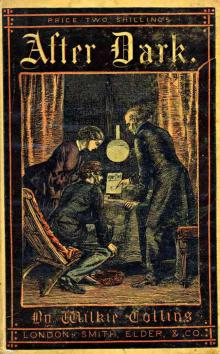 Mr. Captain and the Nymph
Mr. Captain and the Nymph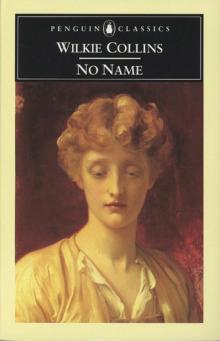 No Name
No Name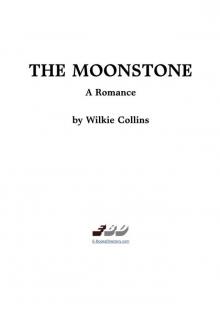 The Moonstone (Penguin Classics)
The Moonstone (Penguin Classics) Antonina
Antonina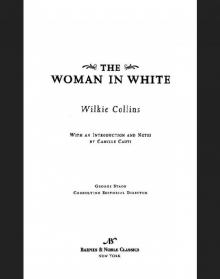 Woman in White (Barnes & Noble Classics Series)
Woman in White (Barnes & Noble Classics Series)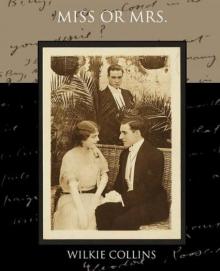 Miss or Mrs
Miss or Mrs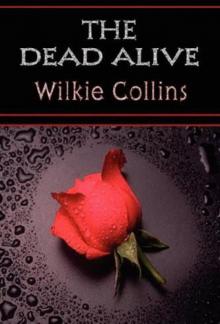 The Dead Alive
The Dead Alive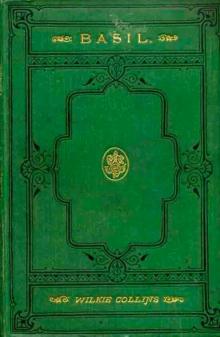 Basil
Basil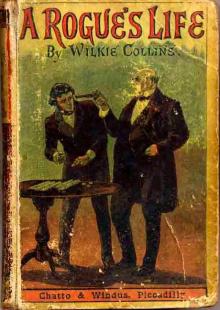 A Rogue's Life
A Rogue's Life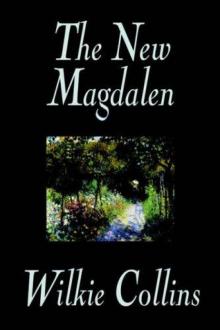 The New Magdalen
The New Magdalen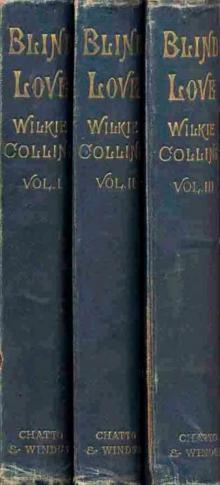 Blind Love
Blind Love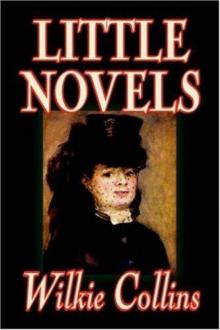 Little Novels
Little Novels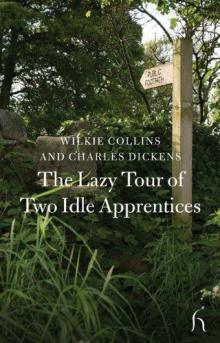 The Lazy Tour of Two Idle Apprentices
The Lazy Tour of Two Idle Apprentices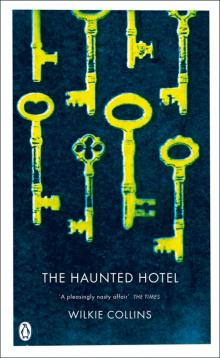 The Haunted Hotel
The Haunted Hotel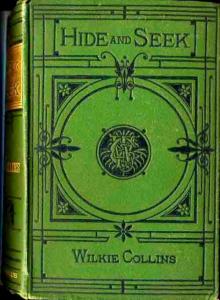 Hide and Seek
Hide and Seek